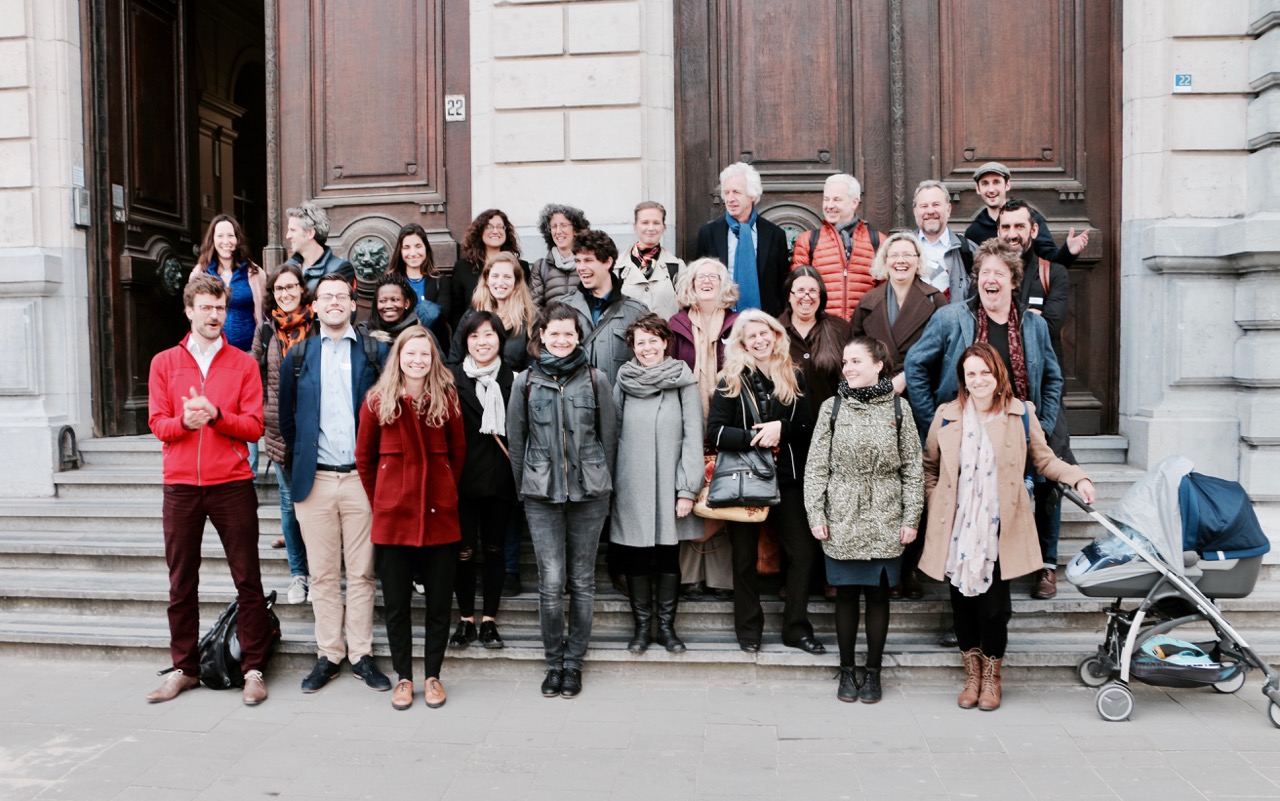
Scope of the conference
Spatial planning today increasingly operates in a fuzzy, non-linear and dynamic world, characterized by a diffused and globally networked society. The complexity sciences have found a receptive ear with spatial planners and governance experts who try to address and embrace this evolving and multiple world (Boelens & De Roo, 2014). According to Isabelle Stengers (2015), complexity is an experimental science, which makes us think, feel, imagine, act… In that way, its application to spatial planning and governance thus opens up many new possibilities for planning theory and practice. It offers as much a metaphorical (also called sematic by its criticists) vocabulary as a pragmatist orientation on concrete operational perspectives, and hand-on experience in ongoing planning processes – opening up to the emergence of new narratives (Stengers, 2015; Hillier, 2010). In other words, complexity enables planners to act in co-evolution with an ever evolving world of unexpected and undefined becoming.
During the conference three aspects were discussed in particular:
- The ability to co-evolve. This theme discussed what is actually means to “actin co-evolution with a world of undefined becomings”. What abilities and capacities are needed in planning and spatial governance that create productive forms of co-evolution? How can these abilities and capacities be further enhanced?
- Trans- or interdisciplinary co-evolutions. Whereas the core of the Complexity Thematic Group lies on spatial planning and governance, the group has over the years received visitors from a diverse set of domains, ranging from architecture and design all the way to even psychotherapy and the medical sciences. This theme discussed what possibilities trans- and interdisciplinary cross-overs and openings can offer to planning theory and practice, and to what extend existing disciplines co-evolve or new disciplines emerge from these cross-overs and openings.
- Co-evolution between theory and practice. Noticing that many members of the Complexity Thematic Group have both academic positions as engagements as planning practice, this theme asked what fruitful insights can emerge from this combination. This theme discussed explicit examples on how notions of complexity sciences are operationalized in practice and how at the same time planning practice can fuel theoretical innovation and debate.
OVERVIEW OF THE PROGRAM AND PRESENTED PAPERS
Day 1: Wednesday 12th April
Opening and welcome by dr.ir. Beitske Boonstra and dr. Ward Rauws
Keynote Speech by Prof. Robert Geyer: “Complexity, Pragmatism and Policy: Can we keep things simple?”
Round Table discussion “The ability to co-evolve” (Moderator: Hannes Couvreur)
Participants: Prof. Robert Geyer, Prof. Luuk Boelens, Prof. Gert de Roo and Prof. Filip de Rynck;
Session 1: Transitions and Co-evolution (Session-chair: Sharon Wohl)
- Wim van der Knaap & Joa Maouche – Are Transition Management Theory and Strategic Planning Complementary?
- Gert de Roo – Spatial Planning and the Complexity of Turbulent, Open Environments: About Purposeful Interventions in a World of Non-linear Change
- Sharon Zivkovic – The Co-evolution of Spatial Planning and Social Entrepreneurship in a Complex World
- Barbara Tempels – Resilience From a Co-evolutionary Perspective: The Example of Flooding and the Built Environment
Day 2: Thursday 13th April
Session 2: Thought Experiments (Session-chair: Paulo Silva)
- Sharon Wohl – Deploying CAS dynamics within the Urban Fabric: A Series of Thought Experiments that Illuminate Possible Trajectories
- Jenni Partanen, Annuska Rantanen & Seija Ridell – Beyond Twittering: Networked Cyborg Avatars as a Challenge for Urban Planning Theory
Session 3: Beyond Fixed Regimes (Session-chair: Ward Rauws)
- Yaara Manor-Rosner, Sayfan Borghini, Beitske Boonstra & Paulo Silva – Place Making in a Contested City: A Story of Epigenetic Tactics in Contemporary Jerusalem
- Suzanne Van Brussel – Large Infrastructure Projects Bring Vested Planning Approaches to Their Knees: The Encounter with Complexity
- Robin Neef, Katharina Gugerell & Stefan Verweij, – Between Aspiration and Reality: Exploring Literature and Actual Practices in Infrastructure Living Labs
Lecture and workshop with the City of Ghent: “Dealing with Complexity in Urban Renewal: the case of Overpoort”
Day 3: Friday 14th April
Session 4: Co-evolution between Formal and Informal (Session-chair: Sharon Zivkovic)
- Wenwen Sun – Co-evolution of Collectives: In Seek of a Position for Complexity-thinking in Chinese Urban Planning Processes
- Paulo Silva & Helena Farrall – Planning Institutions and Informality: Change with Co-evolutionary Insights
- Maisa Totri-Fakhoury & Nurit Alfasi – From Abstract Principles to Specific Urban Form: Applying Complexity Theory for Analyzing Arab-Palestinian Towns in Israel
Session 5: Facilitating Change (Session-chair: Luuk Boelens)
- Ward Rauws – Embracing uncertainty without abandoning planning: Exploring an adaptive planning approach for guiding urban transformations
- Nurit Alfasi – Toward Co-evolution in Planning: The Crucial Role of Mutual Agreement
- Hannes Couvreur, Beitske Boonstra & Griet Hanegreefs – Changing the Landscape, One Conversation at a Time: Solution Focused Brief Therapy as a Complexity-sensitive Approach to Spatial Planning
Session 6: Simulation versus Real: What and how can we learn? (Session-chair: Jenni Partanen)
- Sofia Pagliarin & Lasse Gerrits – Real vs. Simulated Agents in Complex Urban Trajectories
- Angela Ballard – Disrupting Complexity in Planning
- Cristina Ampatzidou – What Can Planners Learn from Emergent Gameplay?

